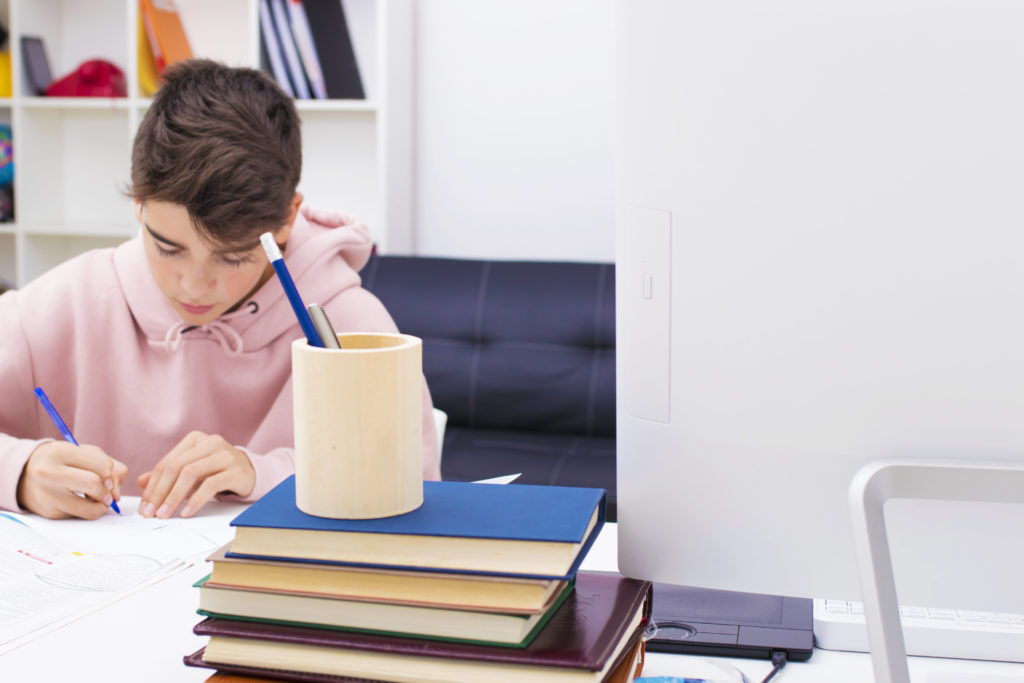“The secret of success is to do the common things uncommonly well. ”
John D. Rockefeller |
Graduating from high school and preparing for post-secondary education is a significant milestone in any teenager’s life. College molds young people and prepares them for life in the real world.
You’ve probably planned for your child’s future by setting aside funds for higher education. Helping kids get good grades, choosing the right universities to apply to, and gathering all the details they can are only some of every parent’s efforts.
Before students step into college, the most important thing they must do is adopt effective study methods that will make retaining information easy.
[Source: Feature Image by Anastasia Gepp from Pixabay]
Why are Proper Study Techniques Important?

The most obvious answer would be – to get good grades and admission into their targeted college. But, there are other factors also. Studies have shown that not all students who have obtained their high school diplomas have the essential skills to complete their post-secondary education and successfully enter the workforce.
Only 40% of graduates have trained in the necessary high school curriculum that prepares them for a college education. At least 42% of newcomers in community colleges and 20% of first-years joining four-year college courses will need to sign up for remedial classes.
The reason is simple. Their basic concepts are not clear, and they need to develop more effective study methods. The most common areas where students need help are writing, reading, and mathematics.
While improving at academics has many benefits, it can help a teen to identify a more concrete goal. It makes the acquisition of study skills more meaningful. If a particular career path is a major motivation for your child, consider focusing on study skills for exams that further their goals. A teen who dreams of helping people as a nurse may feel more excited about the NLN PAX practice test than a general college admittance exam.
Effective Learning Techniques Ensure Long-Term Success

Source Image: https://www.shutterstock.com/image-photo/child-studying-home-school-desk-749887849
The right learning techniques can help students study with a strategy and remember more in a shorter time. Sitting for exams will entail less stress when they’ve prepared their coursework better. Scoring higher grades is also easier.
Here’s how:
1. Begin to Study Well Ahead of Exam Time
Studying material and actually remembering it takes practice. To truly internalize information, it will need to be revisited again and again until the mind retains it properly.
Experts recommend that you read in small increments. Each session should involve re-remembering the concepts learned earlier. And then, moving forward to the next concept. This process strengthens memory. Trying to cram lessons in a week or two just before the exams is not really an effective learning practice.
2. Delving into Each Concept in Detail
When learning a particular concept, it helps to find out more information that may not necessarily be a part of the curriculum, but explains the idea better. Ask detailed questions about how, why, when, and where. Taking a holistic approach by extensively researching the topics ensures that students understand the ideas entirely.
3. Interweaving and Switching Between Subjects or Topics
Focusing on one topic and mastering it before moving on to the next is a good thing. But, switching between topics is also essential. Working on different problems and questions trains the mind to think critically. Students can also avoid boredom by picking other subjects from time to time.
Here’s another secret. Taking a break from the lesson actually gives the subconscious brain time to process the information and retain it better.
4. Combining Visuals and Words
It’s not just a saying–a picture can be worth a thousand words when studying. Images have a strong impact, and learning through pictures, graphs, flow charts, and pie charts is an effective study technique. Students should take the time to create their own images that explain each concept logically with a smooth flow from start to end. Post-secondary education typically involves a lot of coursework, and without study aids, retaining it can be difficult.
5. Expressing Ideas as a Practical Example
Whether they are science or math problems or reading and writing, each lesson can be relevant in day to day living, in some way. Or, can be helpful in a future work environment. Infusing practical examples during the study sessions and thinking about how to use the concepts helps remember them. For example, a business-minded student who finds abstract formulas dull may grow more engaged in math study when learning about its importance in social entrepreneurship. These strategies help view topics in the context of the real world rather than formless ideas on paper.
Essential study aids that every student must absolutely use are actually simple: adequate sleep and balanced nutrition. Not getting enough sleep makes concentration levels and interferes with memory. Parents would want to put together healthy meals for your child with lots of fruits, vegetables, and lean protein. But, lay off the junk food as much as possible.
Simple Strategies, Consistent Habits
Simple strategies like these will give your child that extra edge when going to college and help them complete post-secondary education successfully.
——————————
Article by: PocketPrep.com